Feature Story Archives - 2018
presentations from a variety of sources on
issues of child abuse and trauma |
|
|
~~~~~~~~~~~~~~~~~~~~~~~~~~~~~~~~~~

for some it's a cold road
home for the holidays |
|
It's Nearly Christmas .. a tough time for many
by Teresa Joyce, NAASCA representative in the United Kingdom
EDITOR'S NOTE: We do our "Stop Child Abuse Now" talk radio show EVERY night through the holidays (except Saturdays). Because we understand that the events of the season can be difficult for adult survivors (and parents of kids who are being abused today) we never skip any day in the calendar year. If you feel lonely, or lost, or simply misunderstood over the holidays, NAASCA suggests you listen in to our "Stop Child Abuse Now" talk radio shows. Even better, call into our shows using our direct number: 646 / 595-2118
We are fast approaching Christmas and it seems that everyone is out there preparing for its arrival; there is a hint of excitement in the air and an infectious jolt of it coming ever closer. It's a time that everyone seems to be looking forward to whilst imaging their own little piece of caring sharing and happiness within the company of family and friends. |
~~~~~~~~~~~~~~~~~~~~~~~~~~~~~~~~~~
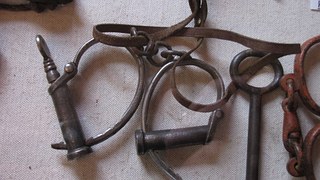 |
|
Tolerance
by Teresa Joyce, NAASCA representative in the United Kingdom
Let's look at the word 'tolerance', which wears many hats. There's an outdoor sculpture in Israel near the Goldman Promenade, 'The Tolerance Monument'. It forms a visually broken column which stands divided, but still very much linked. So are they tolerating each other? It's a study of accumulation and variation within mechanical parts and assemblies.
Many experience a tolerance of drugs or alcohol, simply because the more we use or drink the more our bodies deal with the substances we consume. Pain tolerance is another thing to consider. Oddly it seems that the longer we live in pain, the more our tolerance to it increases. |
Before I rattle on here, in danger of sounding very much like a dictionary, let's move on to something that we neither would nor could think would sit right within the middle of that word .. abuse tolerance.
~~~~~~~~~~~~~~~~~~~~~~~~~~~~~~~~~~
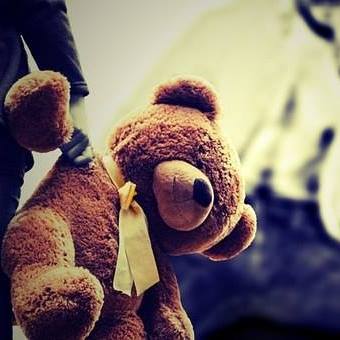
|
|
Open Wound
by Teresa Joyce, NAASCA representative in the United Kingdom
An unforeseen accident can happen to any one of us which requires that we head towards the medicine cabinet to pull out a plaster or a bandage, and maybe even a visit to the hospital to get patched up. We feel a little sorry for our self we may even revel in it a little it's nice to feel cared for even if we play the old soldier for a little too long, but soon enough, we heal and get back to living our lives.
We may even have a battle scar that we proudly exhibit so that everyone gets to see just how injured we were. That, of course, depends on the person or the child and both my grandsons and granddaughter know just how to play me within that to its full effect. It seems that sweets and fizzy drinks will heal all and I want them to get better right?
Well, that's the question I am asked often. |
~~~~~~~~~~~~~~~~~~~~~~~~~~~~~~~~~~
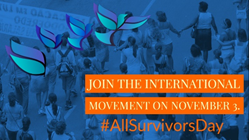
A GLOBAL EVENT -- Sat, Nov 3rd |
|
'All Survivors Day'
A GLOBAL EVENT -- Saturday, Nov 3rd, 2018
Please .. all NAASCA family members .. participate wherever you are.
NOTE: Our founder, Bill Murray, will appear at the event in Los Angeles. Come say hello!
The main event is in Philadelphia, but at this point there are dozens of other events across the globe. Details about each of them can be found on the 'All Survivors Day' web site (just pull down on the HOME page and click on each 'EVENT DETAIL'). |
You can still organize an event wherever you are. Even if you get a handful of people it will add to the national impact. We especially encourage you to make your voice heard on social media!
~~~~~~~~~~~~~~~~~~~~~~~~~~~~~~~~~~

Justice for all? |
|
Legal Help / Your Rights
EDITOR'S NOTE: Although NAASCA does not give legal advice, we certainly do provide members with a general understanding of how to get help and what our rights are. Here's an article and web site that might help. They also have a newsletter.
Remember .. not everyone can get 'justice' .. but all of us can heal !! |
Legal Help for Child Sexual Abuse
As a survivor or care-giver of a child being abused, it is important that you understand your rights, the recourse options available to you, and how the legal justice system works in general. Below are some resources to assist you in understanding the laws of your state, and reporting past or present abuse.
~~~~~~~~~~~~~~~~~~~~~~~~~~~~~~~~~~
|
|
7 Ways Childhood Adversity Can Change Your Brain
Early emotional trauma changes who we are, but we can do something about it.
by Donna Jackson Nakazawa - part 1 (part 2 below)
If you've ever wondered why you've been struggling a little too hard for a little too long with chronic emotional and physical health conditions that just won't abate, feeling as if you've been swimming against some invisible current that never ceases, a new field of scientific research may offer hope, answers, and healing insights.
In 1995, physicians Vincent Felitti and Robert Anda launched a large-scale epidemiological study that probed the child and adolescent histories of 17,000 subjects, comparing their childhood experiences to their later adult health records. The results were shocking: Nearly two-thirds of individuals had encountered one or more Adverse Childhood Experiences (ACEs)—a term Felitti and Anda coined to encompass the chronic, unpredictable, and stress-inducing events that some children face. |
These included growing up with a depressed or alcoholic parent; losing a parent to divorce or other causes; or enduring chronic humiliation, emotional neglect, or sexual or physical abuse. These forms of emotional trauma went beyond the typical, everyday challenges of growing up. (For stories of those who faced childhood adversity, see these videos on Laura and John, two patients featured in my newest book, Childhood Disrupted: How Your Biography Becomes Your Biology, and How You Can Heal.) |
~~~~~~~~~~~~~~~~~~~~~~~~~~~~~~~~~~
|
|
8 Ways People Recover From Post Childhood Adversity Syndrome
New research leads to new approaches with wide benefits.
by Donna Jackson Nakazawa - part 2 (part 1 above)
Cutting-edge research tells us that experiencing childhood emotional trauma can play a large role in whether we develop physical disease in adulthood. In Part 1 of this series we looked at the growing scientific link between childhood adversity and adult physical disease. This research tells us that what doesn't kill you doesn't necessarily make you stronger; far more often, the opposite is true.
Adverse Childhood Experiences (ACEs)—which include emotional or physical neglect; verbal humiliation; growing up with an addicted or mentally ill family member; and parental abandonment, divorce, or loss—can harm developing brains, predisposing them to autoimmune disease, heart disease, cancer, depression, and chronic conditions, decades after the trauma took place. |
Recognizing that chronic childhood stress can play a role— along with genetics and other factors—in developing adult illnesses and relationship challenges, can be enormously freeing. If you have been wondering why you've been struggling a little too hard for a little too long with your emotional and physical well-being —feeling as if you've been swimming against some invisible current that never ceases — this “aha” can come as a welcome relief. Finally, you can begin to see the current and understand how it's been working steadily against you all of your life. |
~~~~~~~~~~~~~~~~~~~~~~~~~~~~~~~~~~
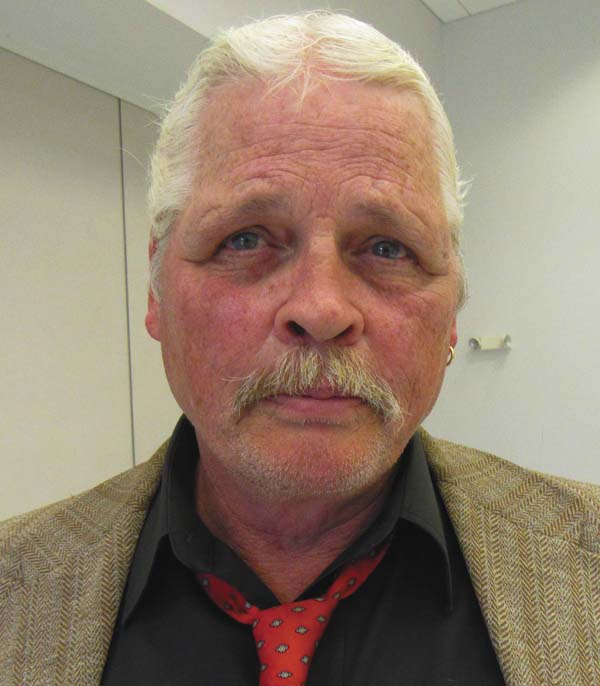 The Rev. Hank McGrath
The Rev. Hank McGrath |
|
The Leader Herald - Gloversville, NY
November 1, 2017
Well-connected often ‘get away' with exploiting young kids, teens
by Eric Retzaff
GLOVERSVILLE — Wealthy, well-connected people often get away with sexually exploiting both girls and boys because they are in “a protected culture” in which they cover for one another, said the Rev. Henry McGrath, pastor of Heritage Ministry of New York, a nondenominational church in the city. |
McGrath, who attended a Human Trafficking and Sexual Exploitation of Youth Awareness Conference Monday at Hamilton-Fulton-Montgomery Board of Cooperative Educational Services, said after the conference that he learned this firsthand as a runaway teenager in the late 1960s and 1970s.
Speaking after the conference, he said he ran away from Troy as a teenager, and ending up in Pittsburgh, he and other boys pickpocketed, stole from stores, and were offered money for sex by wealthy politicians, clergy, and movie and music “moguls.”
~~~~~~~~~~~~~~~~~~~~~~~~~~~~~~~~~~
"The Villanova Report"
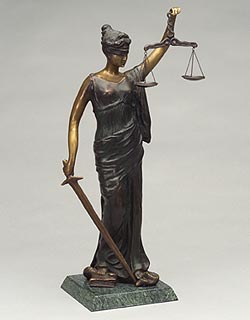 |
|
Court Ordered Rape
REVISED REPORT - Updated 9/18/19
September 23, 2018
Lynn Hecht Schafran, Esq.
Director, National Judicial Education Program
Legal Momentum: The Women’s Legal Defense and Education Fund
Sgt. (ret.) Joanne Archumbalt
EVAWI: End Violence Against Women International
Ms. Jennifer Gentile Long, Esq.
AEquitas: The Prosecutors' Resource on Violence Against Women |
 |
What is “Court-Ordered Rape”?
The phrase, “court-ordered rape,” used hereinafter interchangeably with the phrase, court ordered gynecological examination, refers to a penetrative vaginal and/or anal examination of a victim conducted pursuant to a discovery order issued by a trial court in the course of a criminal prosecution or civil litigation. While “court-ordered rape” is the phrase that Lisa uses to characterize these cases, it’s worth noting some confusion that may arise in using this terminology, since some may confuse it with cases in which women and girls are raped pursuant to village council orders.
~~~~~~~~~~~~~~~~~~~~~~~~~~~~~~~~~~

24 'Harmless' Comments |
|
24 'Harmless' Comments That Actually Hurt Childhood Trauma Survivors
by Juliette Virzi
It took years for me to identify that I grew up in an abusive and invalidating environment. Once I began to talk about it, I was often met with comments like, “I wish you could remember how loving your mom was when you were born,” and, “There are kids out there who are less fortunate than you are.” Sometimes the comments I heard had a more exasperated edge to them, essentially saying, can you please stop talking about this? without actually saying it. Things like, “You need to focus on the positive,” and, “You need to stop living in the past.”
While these comments (mostly) came from good intentions, the reality is they were harmful and invalidating. Just because my mom was loving when I was born doesn't mean she's off the hook for the abuse she inflicted when I was a child and teenager. Just because there are others who “had it worse” than I did doesn't mean what I experienced wasn't painful. And coming to terms with my past trauma doesn't mean I'm “being negative” or “living in the past.” |
For some, “harmless” comments like this might seem insignificant, and have little to no effect on adult mental health. But for many childhood trauma survivors (who often struggle with believing their feelings are valid at all), these kind of comments are actually damaging and can set them back in recovery.
~~~~~~~~~~~~~~~~~~~~~~~~~~~~~~~~~~
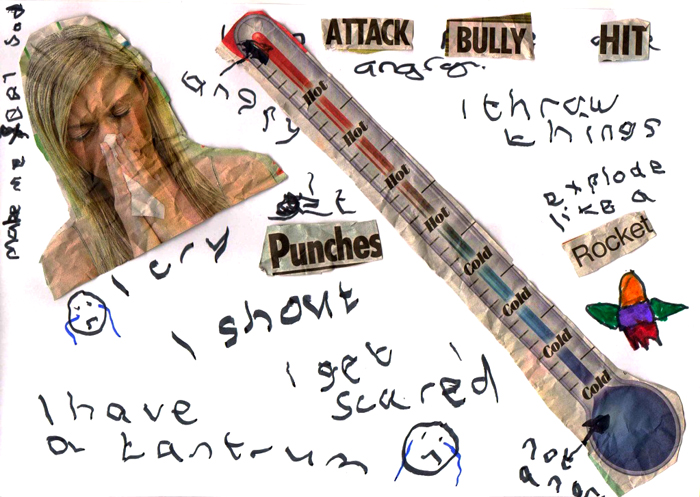 |
|
OPINION
by Ruby Chaos
Anger is one of those difficult emotions, for many people.
It is difficult to know what to do with it, where to direct it and what forms that rage may take; this sense of difficulty is amplified even further if the focus of your anger and rage is unavailable.
Anger is an emotion that I am particularly familiar with, so in this article I am going to write about some methods of dealing with anger that I use, and some of the reasoning and causes behind that anger, including some simple exercises that help me identify that reasoning and the best methods of dealing with anger. |
~~~~~~~~~~~~~~~~~~~~~~~~~~~~~~~~~~
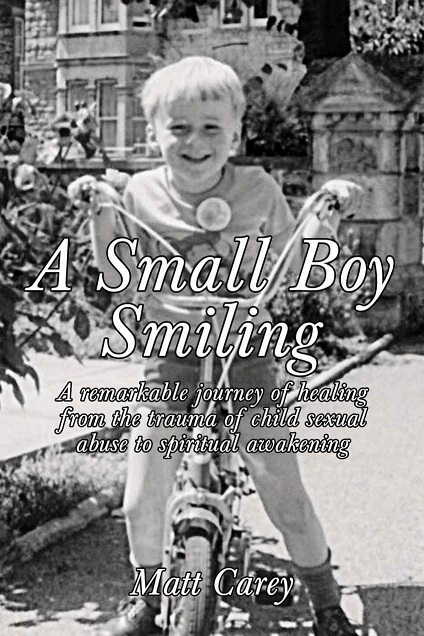
.
- www.mattcareybooks.com -
available on Amazon, UK/US |
|
NAASCA family member expresses his truth
.. what it was like, what happened and what it's like now
by Bill Murray -- #metooCSA
Matt Carey is from London, England (UK). But that hasn't stopped him from participating as a NAASCA family member in our efforts, including a recent appearance as a 'special guest' on our "Stop Child Abuse Now" talk radio show.
Click here if you'd like to hear his interview:
As Matt explains, "It has been the years of working the 12 Step program, regular meditation, the life-changing support I’ve received from my fellow CSA survivors, and the expertise of several highly gifted professional therapists has helped me to change [my] inner narrative."
Here's a terrific article he wrote recently, "Trying to Make Sense of It All," describing what it was like, what happened and what it's like now.
Of his book, "A Small Boy Smiling," Matt writes, "My hope is that fellow survivors of trauma and addiction might find hope and encouragement to find the help they so desperately need to heal."
Thank you, Matt! |
~~~~~~~~~~~~~~~~~~~~~~~~~~~~~~~~~~
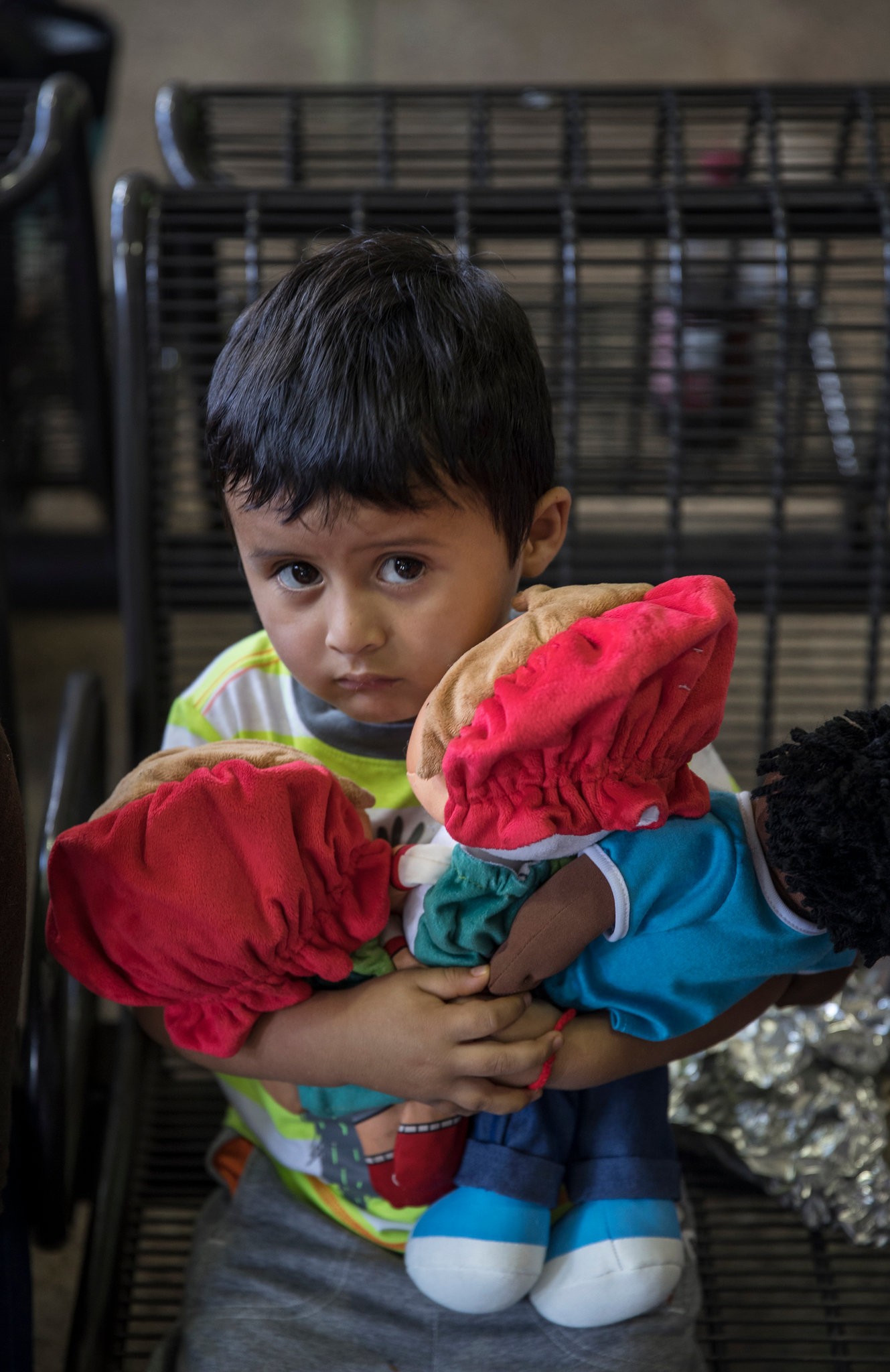 Adan Galicia Lopez, 3, was separated from his mother for four months. Adan Galicia Lopez, 3, was separated from his mother for four months.
photo by Victor J. Blue
for The New York Times |
|
Cleaning Toilets, Following Rules: A Migrant Child's Days in Detention
A portrait of life in the shelters for the children detained after crossing the U.S.-Mexico border.
by Dan Barry, Miriam Jordan, Annie Correal and Manny Fernandez - NY Times
Do not misbehave. Do not sit on the floor. Do not share your food. Do not use nicknames. Also, it is best not to cry. Doing so might hurt your case.
Lights out by 9 p.m. and lights on at dawn, after which make your bed according to the step-by-step instructions posted on the wall. Wash and mop the bathroom, scrubbing the sinks and toilets. Then it is time to form a line for the walk to breakfast.
“You had to get in line for everything,” recalled Leticia, a girl from Guatemala.
Small, slight and with long black hair, Leticia was separated from her mother after they illegally crossed the border in late May. She was sent to a shelter in South Texas — one of more than 100 government-contracted detention facilities for migrant children around the country that are a rough blend of boarding school, day care center and medium security lockup. They are reserved for the likes of Leticia, 12, and her brother, Walter, 10.
The facility's list of no-no's also included this: Do not touch another child, even if that child is your hermanito or hermanita — your little brother or sister.
Leticia had hoped to give her little brother a reassuring hug. But “they told me I couldn't touch him,” she recalled.
In response to an international outcry, President Trump recently issued an executive order to end his administration's practice, first widely put into effect in May, of forcibly removing children from migrant parents who had entered the country illegally.
Under that “zero-tolerance” policy for border enforcement, thousands of children were sent to holding facilities, sometimes hundreds or thousands of miles from where their parents were being held for criminal prosecution. |
~~~~~~~~~~~~~~~~~~~~~~~~~~~~~~~~~~
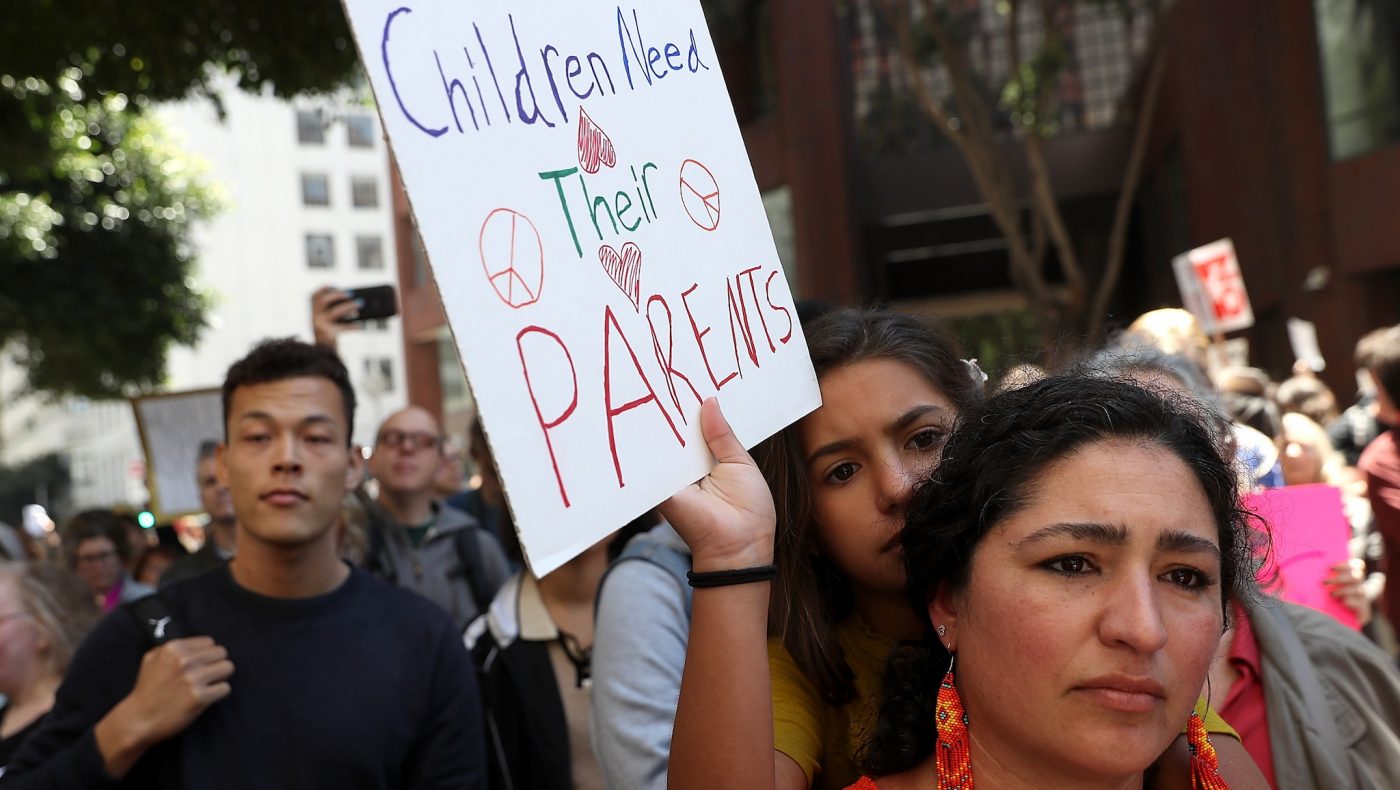
A young girl holds a sign during a demonstration outside of the San Francisco
office of the Immigration and Customs Enforcement (ICE). |
|
Psychological Damage Inflicted By Parent-Child Separation is Deep, Long-Lasting
by Allison Eck -- NOVA / PBS SoCal
Millions of years of evolution have gone into erecting the deepest of connections: that between mother and child.
That primal bond—when forcibly shattered or disrupted—can be devastating for both parent and child, according to scientists, many of whom are weighing in on the White House's recent “zero-tolerance” policy designed to crack down on undocumented immigrants.
“Based on empirical evidence of the psychological harm that children and parents experience when separated,” wrote experts from the American Psychological Association in a letter to President Trump, “we implore you to reconsider this policy and commit to the more humane practice of housing families together pending immigration proceedings to protect them from further trauma.” |
~~~~~~~~~~~~~~~~~~~~~~~~~~~~~~~~~~
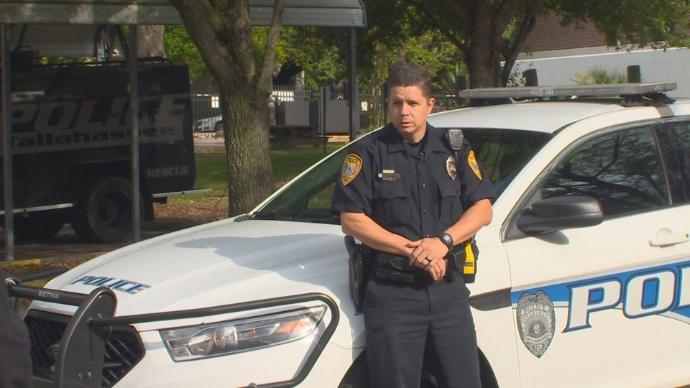
.
Please see the wonderful VIDEO inside |
|
NAASCA family member giving back!
by Bill Murray
The National Association of Adult Survivors of Child Abuse, along with our sister effort, LA Community Policing (LACP), share a common desire to engage in fighting for the safety of kids and offering help to the still-suffering adult survivor of child abuse.
This terrific piece features a NAASCA family member, Sean Wyman, who volunteers as our contact for survivors of child abuse who are police officers, veterans and victims of PTSD. He's also engaged in educating other officers and the public about the many issues that spring from the trauma of childhood abuse and its prevention, intervention and recovery.
Sean's not just a Tallahassee Police Department officer but a former Army Ranger. |
He's a happily married father of two living out his lifelong dream.
The wonderful video inside is from WCTV in Tallahassee, and features lots of footage of Sean at work and with his family.
Way to go Sean !!!
~~~~~~~~~~~~~~~~~~~~~~~~~~~~~~~~~~

About the IICSA.org.uk
---------------------------------
The Executive Summary
- 32 page PDF file - |
|
Independent Inquiry into Child Sexual Abuse - Interim Report
from the United Kingdom
The Independent Inquiry into Child Sexual Abuse was established on 12 March 2015 ‘to consider the extent to which State and non-State institutions have failed in their duty of care to protect children from sexual abuse and exploitation; to consider the extent to which those failings have since been addressed; to identify further action needed to address any failings identified; to consider the steps which it is necessary for State and non-State institutions to take in order to protect children from such abuse in future; and to publish a report with recommendations.' |
The Independent Inquiry into Child Sexual Abuse has published its Interim Report, on 25 April
The Inquiry was required under its Terms of Reference to publish an Interim Report in 2018. This report fulfils that responsibility and provides an overview of the work undertaken by the Inquiry so far.
The Interim Report sets out what the Chair and Panel consider to be the key emerging themes from the Inquiry's work to date and includes recommendations for specific changes which will better protect children from sexual abuse.
~~~~~~~~~~~~~~~~~~~~~~~~~~~~~~~~~~
There are three fundamental truths behind this issue.
 First, every day should be the day we end child abuse. Not just a week or a month. First, every day should be the day we end child abuse. Not just a week or a month.
 Second, it is a harsh reality that we even need to have an awareness campaign at all around an issue like child abuse. Second, it is a harsh reality that we even need to have an awareness campaign at all around an issue like child abuse.
 And, third, child abuse rates have continued to rise over the last almost-four decades, despite our best public awareness efforts. And, third, child abuse rates have continued to rise over the last almost-four decades, despite our best public awareness efforts.
~~~~~~~~~~~~~~~~~~~~~~~~~~~~~~~~~~
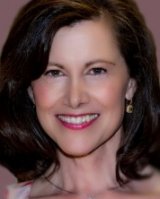
Cynthia Lackner, MA
Emotional Brain Training |
|
I Give People Hope
Emotional Brain Training (EBT)
by Cynthia Lackner, MA
Certified Emotional Brain Training Provider - Stress Free Living
| EDITOR'S NOTE: Cynthia Lackner, MA, offered to write an article about some of the issues and tools we'd discussed on her recent appearance as a 'special guest' on NAASCA's "Stop Child Abuse Now" talk radio show. Here it is !! |
I am a psychotherapist in private practice. I work with people who were abused as children, domestic abuse victims, and others who struggle with debilitating depression, trauma and anxiety.
I often see victims who do not want to feel their emotions, so they turn to alcohol, pot, spending, gambling, porn and food; to self-soothe. These victims live with tremendous levels of stress. |
I teach people how to self-regulate their stress by learning how to rewire their emotional brain, when triggered with stress throughout the day. Every thought, emotion, and behavior are the activation of a string of neurons.
~~~~~~~~~~~~~~~~~~~~~~~~~~~~~~~~~~
 |
|
Lost .. confused .. need direction?
132 of the Best Questions to Help You Reflect on Your Purpose
by Bill Murray
The other night one of the participants on one of our OPEN MIKE discussion "Stop Child Abuse Now" talk radio shows expressed a desire to have a more defined path for her life.
I wasn't surprised at all, as may of us find it difficult to decide what path we should take as we heal and grow stronger. It's as if we're lost, having never been given any clear direction about how to pursue a career, a place to live or what we want from our relationships. |
Here's a terrific tool we found that's generated by the Rockwood Leadership Institute. It's an easy to use and understand exercise, featuring '132 of the Best Questions to Help You Reflect on your Purpose'.
~~~~~~~~~~~~~~~~~~~~~~~~~~~~~~~~~~
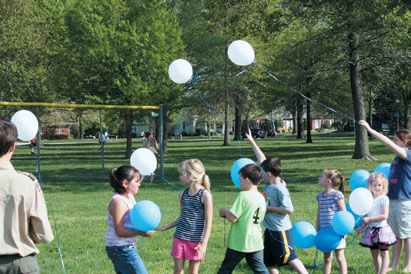 |
|
How to Talk with Your Children about Sexual Abuse
by David Pittman, Together We Heal
I was once given some advice from a person much older and wiser than myself: “ If a child is old enough to ask the question, they are old enough to get the truth.” There is, however, a way to present truth in a way that neither scares the child nor impedes their ability to openly communicate with the adult about “delicate” subject matter.
The following is a combined list of different suggestions on ways to talk to your children about sexual abuse. |
The sources for this information are Together We Heal, The Joyful Child Foundation, The National Center for Missing and Exploited Children, FamilyWatchDog.com, The Center for Behavioral Intervention in Beaverton, Oregon, and the Colorado Bureau of Investigation's: Convicted Sex Offender Web Site, BACHNET, Child Lures, Inc., as well as my own personal recommendations based on personal experience.
~~~~~~~~~~~~~~~~~~~~~~~~~~~~~~~~~~

Dr Laura McGuire |
|
It's April, and I Invite All Survivors to the Spring
But healing, like growing, takes time and patience
by Dr Laura McGuire
| EDITOR'S NOTE: We're delighted to present Dr Laura McGuire, a NAASCA family member who recently made the first of what we hope will be many appearances on our "Stop Child Abuse Now" talk radio shows. A sexologist, she's also offered to write occasional articles for our web site on the topic of child abuse and trauma. |
April is a very special month for myself and my community. Spring has arrived, the world is blossoming and reminding us that life will always renew itself.
For many, this celebration is matched with Easter celebrations as well as two of the most important awareness months- Child Abuse and Sexual Assault Awareness and Prevention. I do not think it is in anyway a coincidence that the world is being refreshed and renewed at the same time as we take a moment to pause, discuss, and highlight such dark and painful topics. |
The famous young adult author, Madeleine L'Engle, once said, “The great thing about getting older is you don't lose all the other ages you have been.” The sentiment behind this is beautiful, that we keep the joy and innocence along with all our gained wisdom throughout each chapter of our lives. This can, however, be equally a painful sentiment for survivors.
~~~~~~~~~~~~~~~~~~~~~~~~~~~~~~~~~~
 Misty Livingston Misty Livingston |
|
Why Disclose Child Abuse That Happened to You When You are Now an Adult?
by Misty Livingston, writer for NAASCA (National Association of Adult Survivors of Child Abuse)
I am writing this after discussions with several other survivors of child abuse this past week that have given me much food for thought about disclosure. If you don't know what I mean by disclosure, it is deciding who to let know about the abuse you have experienced in your life. This issue is a very personal one and significant to my life right now as I have decided in the last six months to break the silence about the history of child abuse in my family. If you care to read ahead, I appreciate your thoughts and feedback because I know I am not alone.
Today another survivor had shared something they had learned a hard lesson about in a 12 step program concerning disclosure: "don't go to a hardware store for a loaf of bread." Meaning don't expect normal and healthy reactions from people who are part of your toxic / dysfunctional family. So if we are seeking healing in our lives, then we must first realize we cannot get our “nourishment” (or bread) from people who are tools of the abusers! |
My step-Dad became a devout Christian scholar while I was in my early teens and continued to share things with me in the role of "teacher" and "spiritual leader of our family" before he passed away in 2011. This made me remember one of the lessons my Dad would mention to me now and again:
"Do not give dogs what is sacred; do not throw your pearls to pigs. If you do, they may trample them under their feet, and turn and tear you to pieces." -- (Matthew 7:6 NIV) |
~~~~~~~~~~~~~~~~~~~~~~~~~~~~~~~~~~
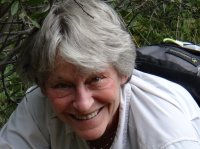
Lorna Littner,
LMSW, M.S.
Human Sexuality Educator |
|
Seize The Day
Time to illuminate the issue of child sexual abuse
by Lorna Littner, LMSW, M.S.
Now that sexual impropriety in the workplace has caught and held the attention of the nation, isn't it time we broaden the media spotlight to also illuminate the issue of child sexual abuse? We are in a watershed moment where we are talking, reading, and maybe even disclosing our own experiences with sexual harassment and assault.
The question is: are we now ready, willing and able to use this moment and this platform to confront the issue of child sexual abuse as well? |
Large numbers of children are at risk every day in places that are presumed to provide solace, service and a safe haven for them. While accurate statistics are very difficult to determine (because they are based only on reported cases and then inferred) the estimates of children who have been inappropriately and prematurely sexualized by an older person range from one in three to one in seven girls and one in six to one in 10 boys. That translates into roughly seven million children in the United States alone.
~~~~~~~~~~~~~~~~~~~~~~~~~~~~~~~~~~
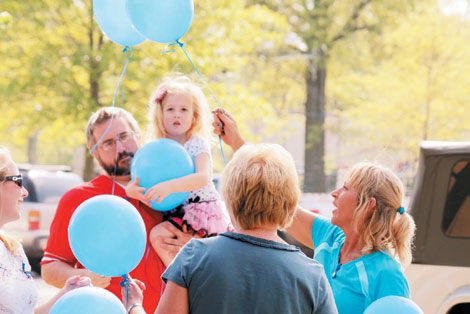
|
|
What's the difference between sexual abuse, sexual assault, sexual harassment and rape?
by Sarah L. Cook, Lilia M. Cortina and Mary P. Koss
The terms “sexual abuse,” “sexual assault,” “sexual harassment” – and even “rape” – crop up daily in the news. We are likely to see these terms more as the #MeToo movement continues.
Many people want to understand these behaviors and work to prevent them. It helps if we are consistent and as precise as possible when we use these terms.
But what does each term mean? |
We are three scholars who have specialized in the scientific study of sexual abuse, rape, sexual assault and sexual harassment over several decades.
Let's start by defining each of these terms. Then, we can look at how these behaviors sometimes overlap.
~~~~~~~~~~~~~~~~~~~~~~~~~~~~~~~~~~
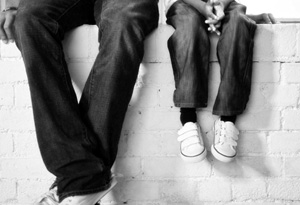 |
|
25 Signs of Emotional Abuse
You need to learn how to identify abusive conduct, take a strong stand against it and acquire the necessary skills to protect yourself from future abuse
by Sinta Ebersohn
Sometimes, emotional abuse can be so subtle that we don't even realize we're being emotionally and mentally abused by someone's words or actions. Even though there are no visible bruises, the damage should never be underestimated. |
How can it be abuse if it is so subtle? This kind of conduct systematically undermines your dignity and leaves you utterly vulnerable and defenceless. Being bullied by a person close to you whom you trust and love dearly, is probably one of the most difficult things to make sense of and can erode one's self-esteem to a life-threatening extent. Abuse does not only happen between couples – parents abuse children, children abuse their parents and it is common among scholars, siblings, friends and colleagues.
~~~~~~~~~~~~~~~~~~~~~~~~~~~~~~~~~~
. |